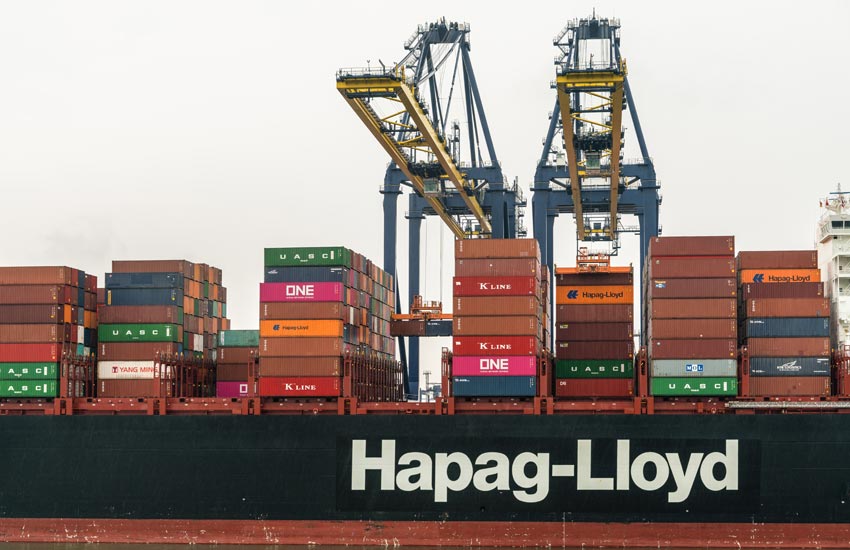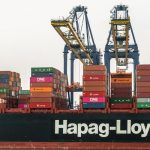The Republic will serve as a key hub in a new ocean network formed under an alliance between two major container shipping lines.
Some 40 vessels transporting eastbound cargo, such as from Europe to Asia, are expected to call at the Singapore port each week under the Gemini Cooperation alliance by Maersk and Hapag-Lloyd, which took effect on Feb 1, a Maersk spokesperson told The Straits Times.
Their aim is to have at least 90 per cent of shipments arriving punctually by the time the new schedules are fully phased in, making the two liners industry leaders in schedule reliability, according to their announcements.
Approximately 340 vessels with a total capacity of 3.7 million 20-foot containers will be deployed to form the Gemini network, with the first sailings scheduled for Feb 1.
More vessels will be added to the schedule in the coming months, with June marking the first full month of complete network operations. The network will focus on East-West trades.
Maersk and Hapag-Lloyd’s shared network will consist of 29 main services, which will be supported by 28 intra-regional shuttle services.
This hub-and-spoke strategy, where central “hubs” such as Singapore serve as main stations, and smaller “spokes”, or routes, extend from these hubs to other destinations, will enable both liners to optimise vessel sizes and sailing speeds, reduce idling time, and cut down on carbon emissions.
“All of this saves our customers a lot of time and resources,” said Hapag-Lloyd chief executive Rolf Habben Jansen in a Jan 31 statement. “With our targeted schedule reliability, we will satisfy one of our customers’ most important needs even better and set a new quality standard in the industry.”
Mr Johan Sigsgaard, chief product officer at Maersk, added that the network was designed to enable its customers to benefit from “increased reliability, flexibility and more competitive products”.
Gemini’s hub-and-spoke model differs from those of Ocean Alliance and Premier Alliance, and Mediterranean Shipping Company’s traditional port-to-port model, where cargo is delivered from one port directly to another, potentially compounding any delays in the schedule, Mr Sigsgaard told the media in a Gemini webinar last week.
Still, the Gemini vessels will sail via Africa’s Cape of Good Hope, taking the much longer route to avoid violence in the Red Sea for now, a decision announced in October 2024.
But since the announcement was made, Yemeni rebels have said they will no longer attack US- and British-owned, managed and flagged ships transiting in the Red Sea, Bab el-Mandeb, Gulf of Aden, Arabian Sea and Indian Ocean, following a Jan 18 ceasefire agreement between Israel and Hamas.
When asked, the Maersk spokesperson noted that an alternative plan involving a trans-Suez/Red Sea network had also been presented in September 2024, “so we are also prepared for that scenario”.
For now, the liners’ focus “remains on implementing the Suez network when it is completely safe to do so. We will aim to make the transition as efficient as possible for our customers, but we also want to make sure that such change is well planned and executed, causing the least possible disruption”, the Maersk spokesperson said.
Source: Straits Times






